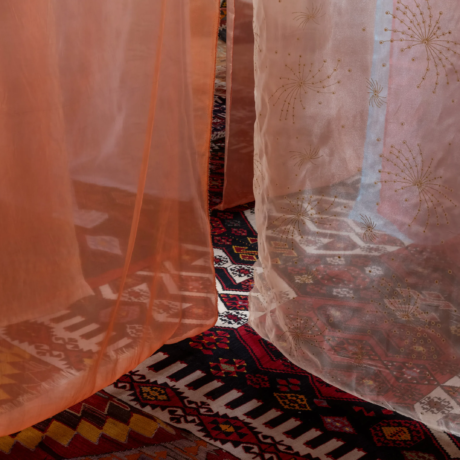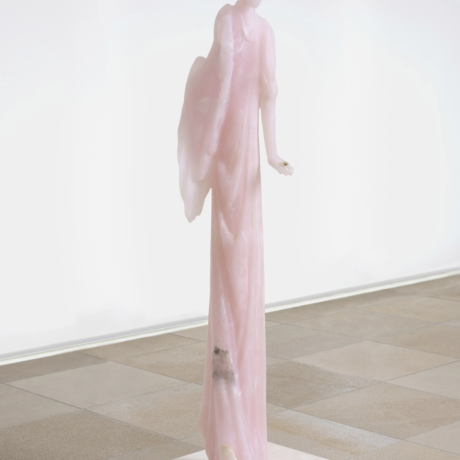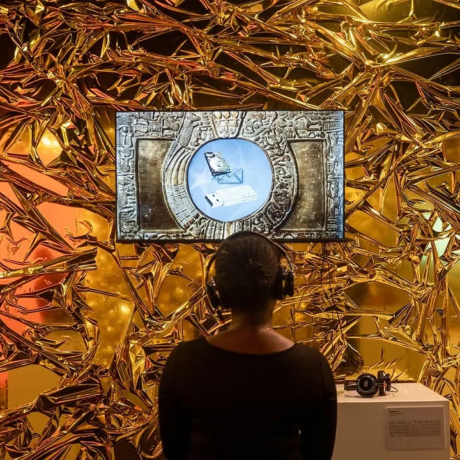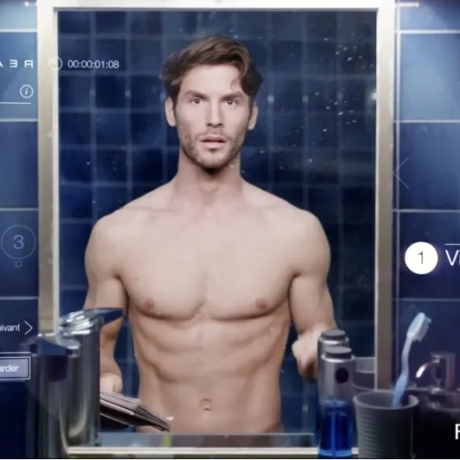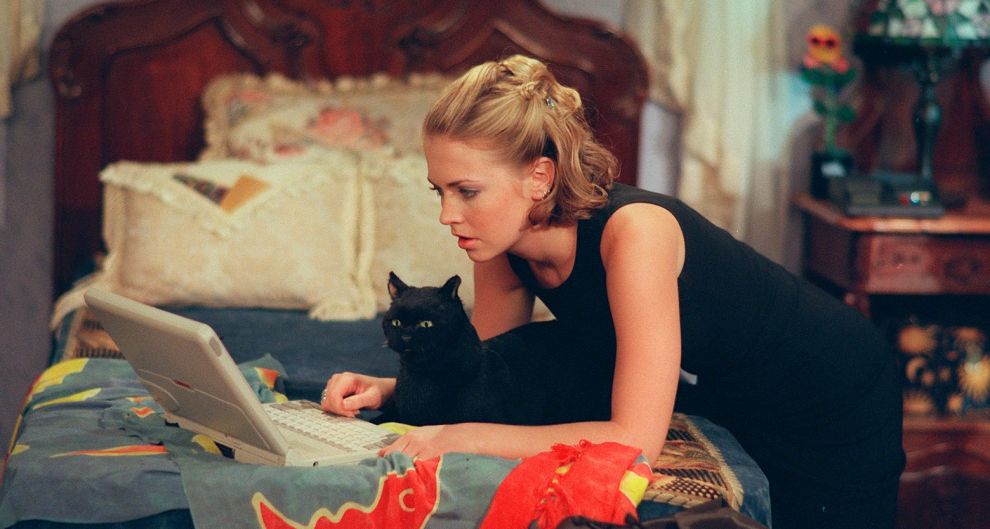
There’s a long history of associating witches with female power. Whether you imagine healers mastering herbs and balms or women in pointy black hats throwing toads’ ears into a green fire, witches represent a form of feminine influence which bely easy understanding and deny the masculine establishment.
Sabrina the Teenage Witch, a sitcom which revolved around a young woman coping with the perils of being, surprisingly enough, a teenage witch, ran from 1996 to 2000 (technically, there were another three years of a spinoff, but we don’t talk about those). It was far from perfect—its feminism was Third Wave, a bit Spice Girls #GirlPower, and the actors were overwhelmingly white, and all straight and cis-gendered. However, the show’s embracing of the ludicrous and absurd in its treatment of the supernatural means that it provides interesting parallels with the way that we approach mysticism today.
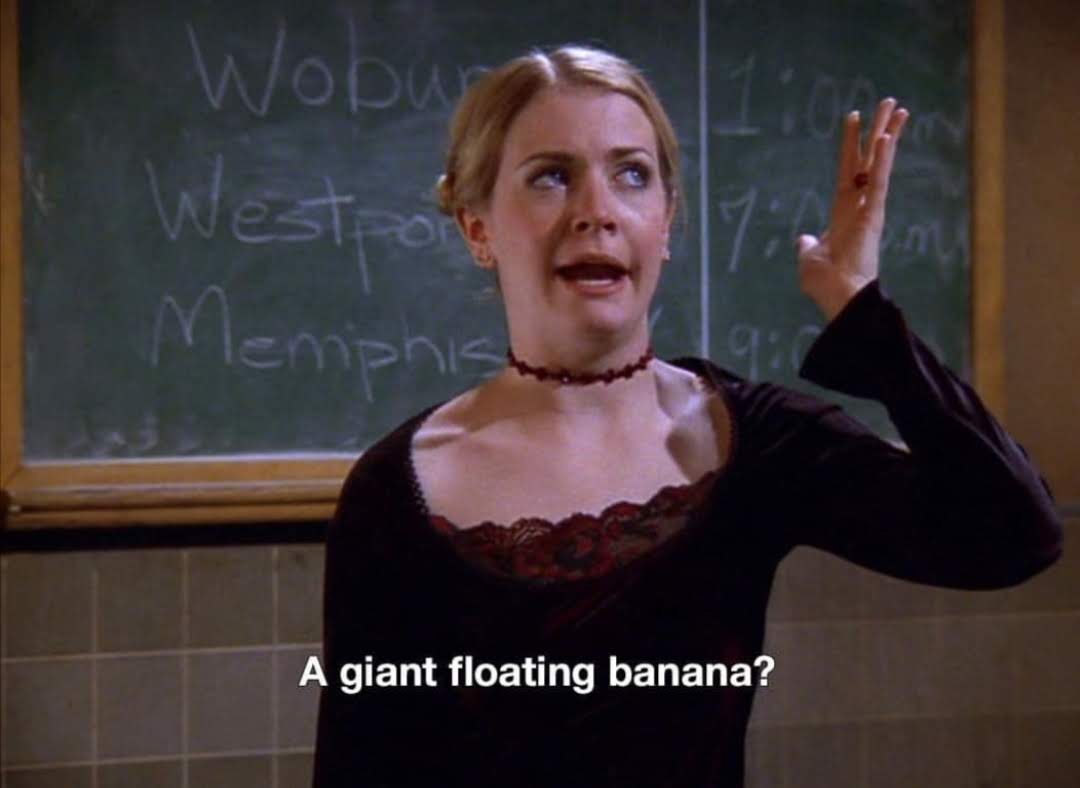
Sabrina the Teenage Witch was silly. The family pet—actually a witch undergoing a prison sentence for trying to take over the world—was a crazy robotic cat who looked like a taxidermist’s worst nightmare. Sabrina’s hijinks were similarly ridiculous. In one episode she makes a 6-foot flan for the whole school, in another she accidentally turns her arch-nemesis into a giant pineapple. Another episode sees her become addicted to pancakes as she succumbs to a family-wide obsession.
“When society feels precarious, we gain a new wave of feminism and visual culture gains a new wave of witches”
Netflix’s The Chilling Adventures of Sabrina, which begins its third season this week, is a whole different broomstick, and its points of difference reveal how the presentation of witches in visual culture changes according to the brand of feminism it temporally coincides with. When society feels precarious, we gain a new wave of feminism and visual culture gains a new wave of witches. During the 1960s’ Women’s Movement, Bewitched saw Samantha asserting her power while remaining a good housewife, during the 1990s, the sisters of Charmed and Buffy the Vampire Slayer’s Willow used their girl power to save the world.
The current contemporary situation means that, on the plus side, our witches represent a more intersectional outlook, On the other hand, lighthearted frivolity is rare in such shows as A Discovery of Witches, the reboot of Charmed, or a much more gothic Sabrina, who overthrows the patriarchy inherent in her Satanic coven. This current concern with the supernatural doesn’t end on the television screen however, and its infiltration of popular culture at large reveals that we still have a lot in common with the Sabrina of the 90s.
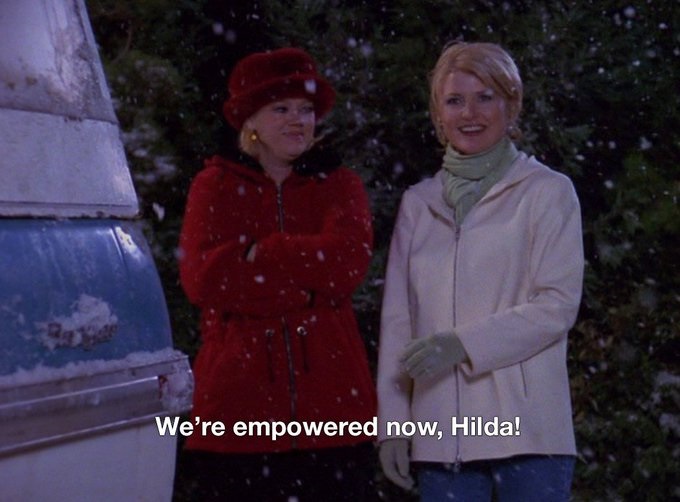
Mysticism has gained popularity among Millennials and Gen Zers; horoscopes, birth charts and tarot cards are on the rise. Just as with previous expressions of the supernatural, it is women and non-binary people who are finding it the most appealing. Mysticism has gone digital, meaning that you can keep up with the state of your destiny via astrology app Co-Star (which will send you daily notifications); through consulting the videos of astrology Youtubers; or through seeking the opinion of columns in online media such as Bustle and The Cut. But it’s about more than being able to blame bad days on Mercury being in retrograde or bad personality traits on having a rising sun in Cancer.
There are certainly some genuine believers in birth charts out there. However, most of those who have been hit by the horoscope frenzy are taking it with a pinch of salt. Can the position of the planets really affect our lives? Probably not, but we all need a little escapism in turbulent times; why not pretend that we believe in the power of the stars? This sentiment is at the root of the plethora of “Twitter is fake but …” themed articles and columns and hashtags. There’s a self-mockery and an acknowledgement that, even if there’s the chance that there is some truth to it somewhere, our obsession with pinning down birth times and finding out that we have a Pluto trine natal moon, feels (like the adventures of that teenage witch) just a bit ridiculous.
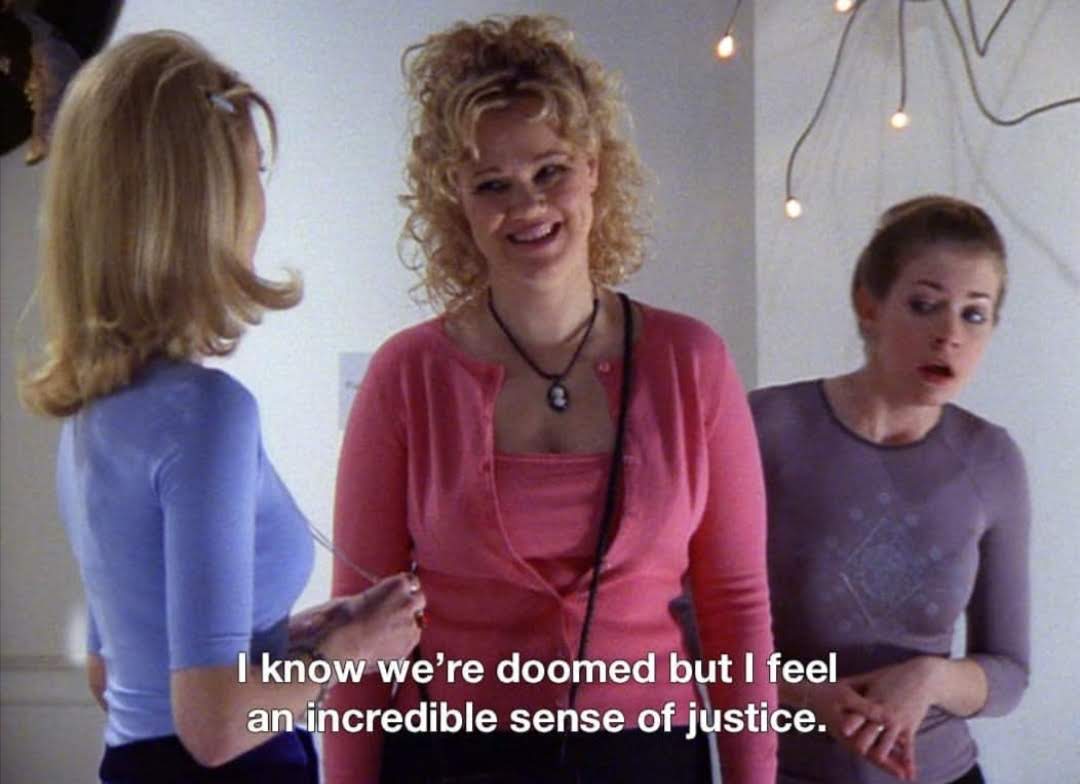
But the thing is, we’re used to the ridiculous, and we’re used to having to take the fake seriously. Since the very first waves of feminism, and its parallel movements for racial equality and LGBTQ+ rights, we are becoming increasingly aware of how much of our daily lives is socially constructed and externally imposed. And yes we can and must fight against the negative aspects of these impositions, as Sabrina does in her Chilling Adventures. However, sometimes, when faced with such foolishness, all we can do is take refuge in further absurdity, just like that Teenage Witch. We want to find a cosmological or supernatural explanation for situations in which we feel powerless, even if we kind of suspect it’s fake. Anyway, is putting our faith in the stars really any stranger or less “real” than putting our faith in a socially-constructed government?
“Can the position of the planets really affect our lives? Probably not, but we all need a little escapism in turbulent times”
Sabrina the Teenage Witch was silly, but her worries were genuine. When she stood up for free speech against her tyrannical headteacher, when her friends accepted her despite her being different, or when she fought against institutional sexism, we can recognise issues that continue to have significance for us. But, really, in the end, the fact that she had to face these problems is no less absurd than the linen cupboard which transported her to “the other realm.” The fact that women are still facing issues of inequality and sexism might seem absurd, but they are real. So if you want to see if everything’s turning to shit because Saturn is in its third house, that’s understandable, and we forgive you. Unless you’re a Scorpio rising because, while astrology might be make-belief, they’re just the worst.
